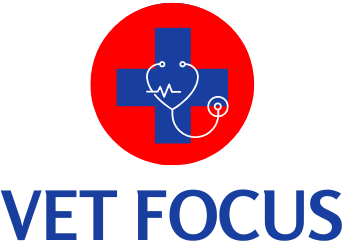The health, administration, and medical care of horses are the primary concerns of the specialized area of veterinary medicine known as equine medicine. Veterinarians are essential to safeguarding the health of horses because they are special creatures with distinct health requirements. The numerous facets of equine medicine will be covered in this blog article, including preventive care, common ailments, lameness assessment, and the function of veterinarians in horse sports and competitions.

1. Horse Preventive Care:
Keeping horses healthy and happy requires regular preventive care. Here are some essential elements to pay attention to:
Vaccinations:
Vaccinations are essential for defending horses against prevalent illnesses. Tetanus, influenza, West Nile, and horse herpesvirus vaccines are frequently advised. To guarantee maximum protection, regular immunization regimens should be followed.
Dental Care:
It is critical to diagnose and treat any dental abnormalities in horses through routine dental checkups. Sharp edges of teeth can be softened by floating them, a process that improves chewing and dental health in general.
Parasite Control:
Horses are vulnerable to both internal and external parasites, such as worms and ticks. Controlling parasite infestations requires implementing a deworming program based on fecal egg counts and environmental management.
Feeding and nutrition:
A healthy horse needs proper nutrition. Horses should be given a balanced diet that satisfies their unique nutritional needs. It is essential to comprehend the dietary requirements of horses based on their age, degree of exercise, and health status.

2. Common Equine Diseases:
Numerous ailments can affect horses, including those that are common. Here are a few of the most typical:
Colic:
The term "colic" is used generally to describe belly pain in horses. Numerous things, such as digestive problems, intestinal blockages, or colonic displacement, can contribute to it. For a successful outcome, early detection and rapid veterinarian intervention are essential.
Laminitis:
A painful ailment that affects a horse's hooves is known as laminitis. Numerous things, like overeating, obesity, or metabolic abnormalities, can contribute to it. To avoid long-term consequences, early intervention and effective management are essential.
Equine Respiratory Diseases:
Equine respiratory disorders can significantly affect a horse's health and performance. Examples of these conditions include equine influenza, strangles, and heaves. Effective management requires a thorough understanding of the symptoms, diagnostic procedures, and available treatments.

3. Evaluation and Treatment for Lameness:
Lameness is a prevalent problem in horses and needs to be properly assessed and treated. What you need to know is this:
Lameness Assessment:
Hoof issues, tendon or ligament injuries, joint illnesses, and other conditions can all contribute to lameness. In order to pinpoint the etiology of lameness, a thorough lameness evaluation includes tracking the horse's gait, doing diagnostic imaging (radiography, ultrasound), and administering nerve blocks.
Rehabilitation and treatment:
Once the underlying cause of lameness has been found, the proper course of action can be taken. The horse can recover and regain normal function with the use of rehabilitation procedures like therapeutic workouts, joint injections, and regenerative medicine choices.

4. Equine Sports Medicine and Competition:
Equine sports and contests demand specific considerations in terms of equine sports medicine. The following are some key elements to concentrate on:
Pre-purchasing Inspections:
Pre-purchase testing should be done thoroughly before buying a horse for sports endeavors or competitions. The horse's overall health, soundness, and appropriateness for the planned use are assessed during this inspection.
Performance Enhancement:
There are rules and ethical guidelines that must be followed when using drugs or therapies that improve performance in equine sports. It's critical to put the wellbeing of the horse first and to compete within the rules.
Injury Prevention:
To maintain the safety of horses during training and competitions, injury prevention techniques are essential. Injury risk can be reduced through the use of effective warm-up and cool-down procedures, conditioning programs, and training strategies.
Emergency Care at Competitions:
During horse competitions, veterinarians are essential in providing emergency medical care. They are in charge of ensuring the horses' wellbeing and swiftly attending to serious injuries.

Preventive care, diagnosis, treatment, and emergency care are all included in the field of equine medicine. Veterinarians may protect the health and welfare of these amazing creatures by comprehending the special requirements of horses and staying current on the most recent developments in equine medicine. Horses, whether they are companion animals or high-performance athletes, can lead healthy and satisfying lives with preventive measures, early intervention, and proper treatment options.

